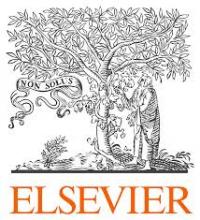Resource information
Farmers are key actors in land management confronted with societyâs increasing demand for public goods. Understanding farmersâ values and motivations is essential to policy makers to foster more sustainable production practices. So far, no definite value profile for European farmers exists. Based on Schwartzâs theory of basic human values, we statistically analyzed six rounds of the European Social Survey to explore farmersâ value orientations in Austria, Denmark, Finland, Germany, the Netherlands, Sweden, and Switzerland. Our results revealed that farmers are less open to change and instead more conservative in their value orientation than the general population. Comparison of value orientations across farmers showed that this value profile is particularly pronounced for Austrian, Finnish, and German farmers. Furthermore, there is a slight tendency for farmers to be less motivated by self-interest and instead more concerned with common welfare than the general population, but this observation needs further validation. Based on these value profiles, we argue that agri-environmental schemes will receive better acceptance when they represent a long-term modification of existing schemes, when they do not trade off commodity production, and when they provide benefits to society. Compensation for income losses resulting from reduced on-farm output appears to be an ineffective incentive.



